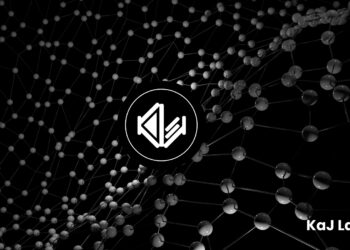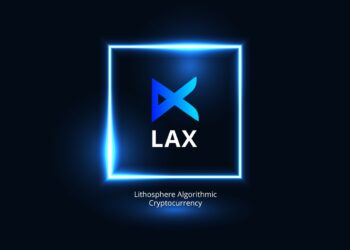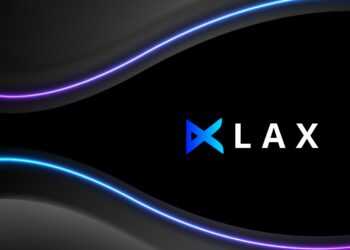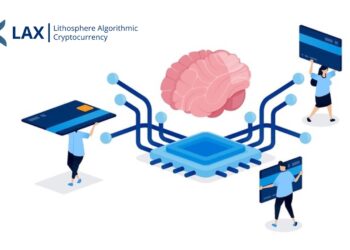The Mexican Federal District Government Transport and Highway department of the state of Coahuila has tapped DeepCloud AI to establish a tamper-proof vehicle registration using the DeepCloud AI infrastructure.
DeepCloud AI, a decentralized cloud computing platform utilizing AI and blockchain technology, is expected to roll out the prototype in July 2019 for the state of Coahuila, before extending the QR-embedded license plate service to the Mexican national scale by December. The move represents a significant step forward for practical applications of next-generation platforms at the convergence of two innovative technologies – blockchains and AI.
As part of the initiative, called MexiCar, DeepCloud AI has partnered with FPGA accelerator card provider, Xilinx, in an effort to supplement the future landscape of autonomous vehicles, which require heavy computational processing at the edge device (i.e., car IoT devices).
Understanding MexiCar
“If we’re going to disrupt, we must have full control of the infrastructure,” detailed Geeta Chauhan, CTO of DeepCloud AI, in the press release. “It doesn’t mean that AWS and Google are out. It means that if we need to compute power in specific areas, then we can spin up instances from them into our fabric at any time.”
MexiCar will function as an application built on top of DeepCloud AI’s decentralized cloud computing infrastructure. The network is composed of network resource providers and application developers, who mutually benefit each other in populating application marketplaces. The platform also uses AI and machine learning (ML) to map efficient paths to resource demands on the network, which can allocate computation to edge devices securely.
In the context of MexiCar, DeepCloud AI empowers vehicle owners to secure vehicle registration using digital documentation with third parties like government agencies, insurance agencies, and law enforcement. The auditability of the underlying DeepCloud blockchain, which is facilitated by smart contracts, will provide assurances against fraud or manipulation of the registration data.
The immediate advantages of decentralized cloud computing as infrastructure-as-a-service (IaaS) are improved cost-effectiveness, lower barriers to entry for developers, and more secure/robust data models and privacy. DeepCloud AI has advanced more forward-thinking intentions with their Mexican partnership as well.
For example, the incorporation of Xilinx and their leading FPGA cards – more powerful processing units than CPUs or GPUs – presents a unique opportunity to capitalize on the emergence of autonomous vehicles – which are natively integrated with IoT technology.
“FPGA cards will be distributed to handle heavy compute workloads,” says Deepchain AI CTO, Geeta Chauhan, in the press release. “Other apps do not have the technical advantage of having the fastest infrastructure in the world.”
Those technical advantages include reduced network latency, reportedly up to 10X better than Google and Amazon (AWS), and the inclusion of Intel’s SGX technology – a popular innovation in secure enclave computing, also known as trusted execution environments.
Enterprise demand for hybrid cloud services is rising, in part because they want the data privacy and security of private clouds with the performance and scale of public cloud infrastructure. DeepCloud AI converges on both models in a unified infrastructure, whereby a confluence of decentralization, AI, SGX, and open marketplaces present the best of both private and public cloud computing.
MexiCar is set to unfold as one of DeepCloud AI’s primary enterprise initiatives over the coming months, and the platform has even “future-proofed” its FPGA advantage by building its own proprietary post-quantum encryption algorithm – integrated into the DeepWall security chip.
Instances of ground-up builds for applications on decentralized cloud computing platforms are promising, especially when prominent hardware technology, like Xilinx FPGA cards, are included. It represents growing interest, and staying power, in the new generation of cloud computing platforms.
Several other high-profile companies, such as Salesforce, have also made the dive into integrating blockchain technology with their cloud business products. Salesforce unveiled a Hyperledger Sawtooth-based platform for its cloud business management product at the end of May, and even more recently, Cloudflare, one of the largest cloud network platforms in the world, announced its gateway to the Ethereum blockchain.
While promising forays into increasing interoperability and connectivity with blockchains, the endeavors by Salesforce and Cloudflare are not as ambitious as DeepCloud AI.
“Our platform provides a functional marketplace for computing and storage resources for companies and individuals – enabling them to share their excess capacity via our decentralized cloud,” says DeepCloud AI CEO, Max Rye. “The goal is to democratize access to cloud computing by lowering barriers to entry, improving efficiency, and ultimately, ushering in a new era of decentralized applications.”



















